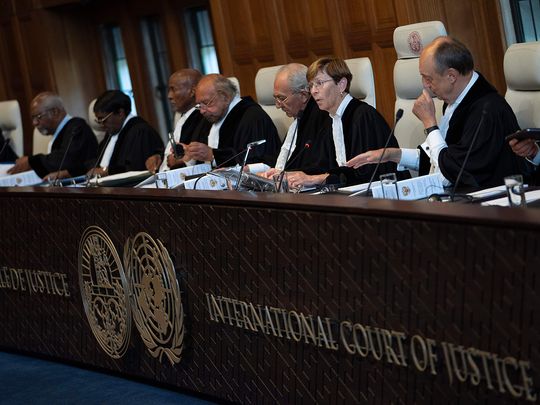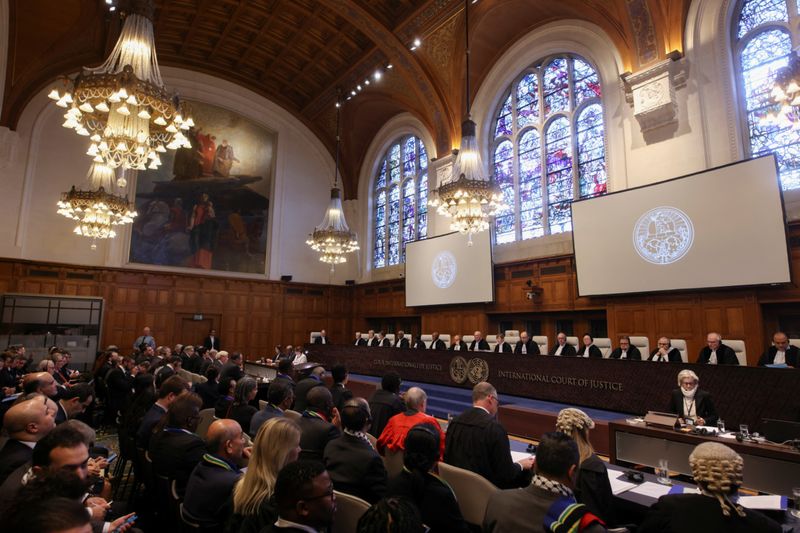
Israel has come under intense scrutiny as the International Court of Justice (ICJ) commenced hearings on South Africa’s genocide case, accusing Israel of committing 'genocidal acts' against Palestinians in Gaza.
The ongoing three-month conflict has resulted in a devastating toll, with over 23,000 Palestinians, primarily women and children, losing their lives, and a significant portion of Gaza’s 2.3 million population being displaced.
The UN, recognising the severity of the situation, has declared it a humanitarian catastrophe, attributing much of the crisis to the Israeli blockade that restricts essential resources.
Read more
- At UN court, South Africa accuses Israel of Gaza genocide
- Top UN court opens hearings in Gaza genocide case against Israel
- South Africa vs Israel at the World Court: Determining genocide in Gaza at ICJ
- Legal battle on Gaza war opens Thursday: What is genocide case against Israel at top UN court? Here’s all you need to know
South Africa’s legal challenge centres on the claim that Israel has violated the 1948 genocide convention, established in the aftermath of the Holocaust to prevent the recurrence of such heinous acts.
As the principal judicial body of the United Nations, the ICJ is now delving into an 84-page document filed by South Africa, outlining what it deems as genocidal acts in Gaza.

Dehumanising Palestinians
The arguments presented at the ICJ on Thursday included allegations that Israel breached Article II of the Genocide Convention, with the lawyers specifically citing the “mass killing” of Palestinians with a staggering 6,000 bombs deployed weekly.
Beyond the immediate conflict, South Africa’s legal team highlighted broader issues, including bodily and mental harm inflicted on Palestinians and the obstruction of life-saving aid.
They presented compelling evidence of intent, referencing statements by some Israeli leaders that dehumanise Palestinians or blur the distinction between Hamas fighters and civilians.
Broader implications
The case carries broader implications, emphasising the collective responsibility of states to prevent genocide. This resonates with The Gambia’s charges against Myanmar over the Rohingya, reinforcing the commitment outlined in the genocide convention.
The potential consequences of the ICJ’s deliberations are significant. A ruling on the charges against Israel could be issued within weeks. The measures that might follow could range from restoring essential services in Gaza to addressing provocative statements from Israeli leaders.
Israel’s actions in Gaza
South Africa’s specific requests to the ICJ demonstrate the gravity of the situation. They call for Israel to halt all military attacks that violate the Genocide Convention, cease causing serious harm to Palestinian people in Gaza, and facilitate the delivery of humanitarian aid.
The court’s potential power to enforce these requests adds another layer of significance to this critical examination of Israel’s actions in Gaza.
As the ICJ hears this all-important case and navigates through this complex legal terrain, the world watches closely, anticipating the potential impact on the pursuit of justice and accountability in the face of alleged genocidal acts.








